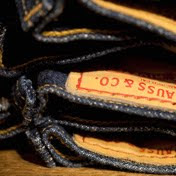
Dave barry is known as a famous humor columnist,his work was appeared in more than 500 news papers in the united states and beyond.
He won the pulitzer prize for commentary,and he also has written a total of 30 books were used as the basis of CBS sitcom ''dave's world''
In his spare time, Dave is a candidate for president of the United States. If elected, his highest priority will be to seek the death penalty for whoever is responsible for making Americans install low-flow toilets.
Dave lives in Miami, Florida, with his wife, Michelle, a sportswriter. He has a son, Rob, and a daughter, Sophie, neither of whom thinks he's funny.
This one of his famous articles calls : a man's job
When it comes to domestic responsibilities, men aren't dropping the ball.source :http://www.washingtonpost.com/Oh, swell. We have yet another survey showing that men, when compared with women, are scum. Just once, I'd like to see some survey asking questions that would highlight areas where men are more likely to be superior, such as:
(1) If it was an emergency, could you open a beer bottle with your teeth?
2) How many hours per week, total, do you spend fretting about your thighs?
(3) Do you have the emotional stability to make a meaningful lifelong commitment, through good times and bad, to a set of underwear?
(4) Do you know the joke whose punch line is: "But first, roo-roo!"?
(5) If another person is not saying anything, and you're wondering if this might be because something is bothering that person, and you ask that person what that person is thinking, and that person says, "Nothing," do you accept this perfectly reasonable answer, or do you proceed to nag the person half to death?
But do we see these questions on surveys? We do not. Instead, we see questions like the ones asked in a recent survey by the U.S. Department of Labor. Having apparently run completely out of useful things to do, the department asked 21,000 Americans how they spend their time when they're not working.
It turned out that women spend twice as much time as men on household chores and child care, while men spend more time on leisure. On the surface, this looks bad. But surface looks are often deceiving. A good example is the iceberg, which appears to be a big hunk of ice, but if you look beneath the surface, you find that it is . . . okay, it is actually a big hunk of ice. So we see that this is, in fact, not a good example, and we should just move on.
But my point is that this survey is very misleading. Take the concept of "housework." It may be true that women spend more time on it, but what, really, are they accomplishing?
In my own home, my wife spends a lot of time picking up our 4-year-old daughter's doll clothes and laboriously putting them back on the various naked Barbies, the naked Snow White, the naked Ariel the mermaid and the incredibly lucky naked Ken.
When my wife does this, she is clearly working, but she is not what a man would call "working smart." A man knows from harsh real-world experience that all of these dolls will soon be naked again, and so he makes a conscious decision to leave the dressing of the dolls, and the cleaning of his daughter's room in general, until a more sensible and productive time, such as when his daughter enters college. But does this man get any slack from the so-called Department of Labor? He does not.
And let's talk about child care versus leisure. For women, these are two separate activities, but men have perfected a productivity-enhancing technique called "multitasking." Say a man is supposed to watch a child, but he also wants to watch a football game. Thanks to "multitasking," this man can keep one eye on the football game, while at the same time keeping the other eye also on the football game. But in some remote sector of his brain he is vaguely aware that there is a child around somewhere, and if he hears anything suspicious, such as sirens or an explosion, he will respond immediately, unless it is a crucial third-down situation.
Speaking of which: I was once at a Thanksgiving gathering where there was a backyard touch football game involving all the guys except one -- I will call him "Fred" -- who was watching us while holding his infant daughter. My team was short one player, and we were in a crucial third-down situation, so we looked over at "Fred" -- an excellent receiver -- and, after making us swear we would never tell his wife, he very carefully set his daughter down on the lawn and joined the game for a single play, which resulted in Joel -- excuse me, I mean "Fred" -- scoring a touchdown.
This never would have happened if we had allowed ourselves to be shackled by the rigid, inflexible definitions of "leisure" and "child care" that have for so long enslaved women and the so-called Department of Labor.
Am I saying men are perfect? I am not. There are certainly areas of domestic life where men could show more sensitivity toward, and awareness of, the imbalance between them and women, and I intend to address these areas in detail. But first, roo-roo!
For more articles click on this Link. 











